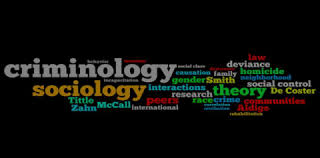Impact of criminological research on social policy
Criminological research can impact social policy in a considerable way, given that crime and criminal justice are generally considered social issues. While criminal justice is involved in studying crime, social policy aims at establishing how the society promotes the welfare of individuals. Both areas are also related to social problems that relate to crime and are concerned about how better responses can be undertaken to prevent crime (Wincup, 2013: 5).
Therefore, research in criminology provides useful findings on crime, criminal behavior, causes of crime, ways of preventing crime and how to deal with offenders in order to reduce crime, all which provide solutions that can be applied in social policy development to make the society a better place to live.
Sociology aspect: Criminological Research
Crime is considered a social problem and social policy concerns itself with addressing social problems. In this relation, criminology and social policy have a direct relationship in that criminology studies provide solutions for addressing crime in order to promote societal welfare. The application of criminological research provides a more comprehensive approach to identifying social problems that lead to crime.
It provides a more scientific approach in the collection of data, analysis and presentation, which provides highly relevant information for use in managing crime (Liebling, Maruna & McAra, 2017: 58). A majority of these interventions revolve around social policy and this implies that criminological research has significant implications on criminal research. This could also explain why criminological research as a course is offered together with social policy, given that they both have a beneficial relationship.
The more recent research on whether prisons are more useful or harmful in promoting reducing crime is an example of research in criminal justice that has a direct impact on social policy. This is because while the use of prisons has been predominant over the decades as a means of correction, statistics have also shown that the use of prisons has only resulted in overcrowded jail facilities and increased crime as witnessed in the rate of recidivism among former criminals.
In this relation, criminology research has also focused on determining social interventions that would be more effective in reducing crime such as poverty reduction, education, early child development programs, job creation, war on drugs, help for mental problems and community-based punishments for crime (Liebling, Maruna & McAra, 2017). This would impact social policy in that based on the recommendations from criminology research, it is possible to implement such measures to provide solutions that improve social welfare.
Such actions have been observed in the United States there is increased efforts towards addressing underlying social issues that influence crime. A notable intervention has been the implementation of prison education programs that ensure that prisoners are able to take reintegrate into the society through finding decent jobs (Davis, 2014: 1). The same applies for prison overcrowding, where criminological research has been prevalent and established that overcrowded prisons have led to more problems in the United States’ attempt to reduce crime.
The government has consequently called for action to address the problem of prison overcrowding to promote the welfare of prisoners and reduce deaths, injuries, immorality and recidivism associated with prison overcrowding. To address such issues, social policy must rely on findings from criminological research because they are more accurate and are based on well researched theories, such that interventions are likely to lead to better outcomes.
References
Davis, Lois M., et al. (2014). How Effective Is Correctional Education, and Where Do We Go
from Here? RAND Corporation, 2014, Report No. 564. Retrieved from https://journalistsresource.org/studies/government/criminal-justice/effects-prison-education-programs-research-findings
Liebling, A., Maruna, S. & McAra, L. (2017). The Oxford Handbook of Criminology. Oxford University Press
Wincup, E. (2013). Understanding crime and social policy. New York: The Policy Press
Want help to write your Essay or Assignments? Click here


